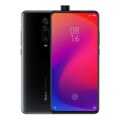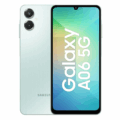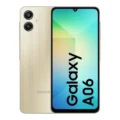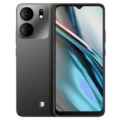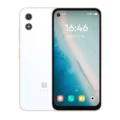- Gadget24
- Gadget Specifications
- Xiaomi
- Xiaomi Redmi Note 9
Xiaomi Redmi Note 9
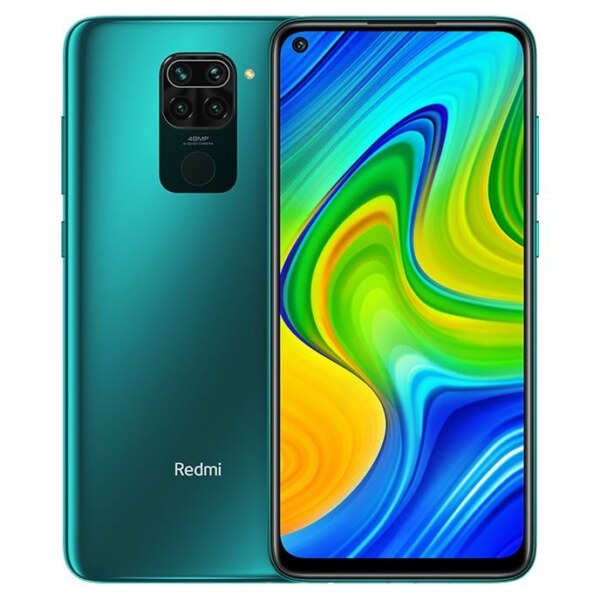
The Redmi Note 9 is the direct successor of the Redmi Note 8 launched back in 2019. The device comes with Mediatek Helio G85 CPU, instead of the Snapdragon 665 used in the older version. The display now is a 6.53-inch FHD+ screen with 1080 x 2340 pixels resolution. The screen has a dot notch on the left hand corner, housing the front camera.
Under the hood, there is an Octa-core Mediatek Helio G85 CPU clocked at 2.0GHz, along with Mali-G52 MC2 GPU. It has 3/4GB RAM and up to 128GB of internal storage, which is expandable up to 256GB via a dedicated SD card.
As for the camera department, you are getting four sensors at the back, comprising of a 48-megapixel main sensor, 8-megapixel wide shooter, 2-megapixel macro and 2-megapixel depth sensors. For selfies lovers, there is a single 13-megapixel sensors kept in the punch cut-out.
What’s more? The device provides support for dual 4G VoLTE enable SIMs, and fueled by a 5020mAh battery, with 15W fast charging via USB Type-C interface. It also run on Android 10 out of the box and available in either Forest Green, Midnight Grey, Polar White and Onyx Black colors. Other key specifications and features of the Xiaomi Redmi Note 9 are contained in the table below.
Full Specifications
NETWORK
| Technology | GSM / CDMA / HSPA / LTE |
| 2G Network Bands |
GSM 850 / 900 / 1800 / 1900 - SIM 1 & SIM 2 (dual-SIM model only) CDMA 800 & TD-SCDMA |
| 3G Network Bands |
HSDPA 850 / 900 / 1900 / 2100 CDMA2000 1xEV-DO |
| 4G Network Bands | LTE band 1, 3, 5, 7, 8, 34, 38, 39, 40, 41 |
| 5G Network Bands | Does not have support for 5G Network |
| Speed | HSPA 42.2/5.76 Mbps, LTE-A (3CA) Cat9 450/50 Mbps |
LAUNCH
| Also Known As |
- - |
BODY
| Dimensions | 162.3 x 77.2 x 8.9 mm |
| Weight | 199 grams |
| Build |
Glass front (Gorilla Glass 5) - plastic frame |
| SIM Type | Dual SIM (Nano-SIM, dual stand-by) |
DISPLAY
| Display Type | IPS LCD capacitive touchscreen, 16M colors |
| Size | 6.53 inches, 104.7 cm2 (~84.9% screen-to-body ratio) |
| Resolution | 1080 x 2340 pixels, 19.5:9 ratio (~395 ppi density) |
PLATFORM
| Operating System | Android 10; MIUI 11 |
| Chipset | MediaTek Helio G85 (12nm) |
| CPU | Octa-core (2x2.0 GHz Cortex-A75 & 6x1.8 GHz Cortex-A55) |
| GPU | Mali-G52 MC2 |
MEMORY
| RAM + ROM | 3/4 GB |
| Card Slot | Yes, up to 256 GB via microSD card (uses SIM 2 slot) |
MAIN CAMERA
| Camera Type | Quadruple Lenses |
| Camera Sensor(s) | 48 MP + 8 MP + 2 MP + 2 MP main camera |
| Camera Features |
Autofocus Continuous shooting Digital zoom Optical zoom Digital image stabilization Geotagging Panorama HDR Touch focus Face detection White balance settings ISO settings Exposure compensation Self-timer Scene mode Macro mode RAW Sensor size - 1/2" Pixel size - 1.6 μm (4-in-1 pixel binning) Phase detection Laser autofocus Contrast autofocus Sapphire crystal glass lens cover 6-element lens 8 MP, f/2.2, 13mm (ultrawide), 1/4", 1.12µm 2 MP, f/2.4, 1/5", 1.75µm (dedicated macro camera) 2 MP, f/2.4, 1/5", 1.75µm, depth sensor |
| Video Resolution | 2160p@30fps, 1080p@30/60/120fps, (gyro-EIS) |
SELFIE CAMERA
| Camera Type | Single Lens |
| Camera Sensor(s) | 13-megapixel |
| Camera Features |
f/2.0 aperture 1/4" Pixel Size, 1.0µm, Autofocus |
| Video Resolution | 1080p@30fps |
SOUND
| Loudspeaker | Yes |
| Speaker Location | Chin, below display |
| Audio Jack Type | Yes, 3.5mm audio jack, |
CONNECTIVITY
| Bluetooth | Bluetooth 5.0, A2DP, LE, aptX HD |
| NFC | |
| GPS | Yes, with dual-band A-GPS, GLONASS, BDS, GALILEO, QZSS |
| FM Radio | No |
BATTERY
| Battery Capacity | Non-removable Li-Po 5020 mAh battery |
| Wireless Charging | No |
| Talk Time Talk Time is the longest time that a single battery charge will last when you are constantly talking on the phone under perfect conditions, Ambient temperature and highly dependent on the cellular network environment such as the distance to the closest cell network tower. | Up to 34 hours |
| Stand-by | Up to 580 hours |
OTHER FEATURES
| Sensors | Fingerprint (side-mounted), accelerometer, proximity, compass |
| Box Contents | Charging Brick / USB cable |
User Reviews
Disclaimer Note
Note: Specifications may not be 100% accurate.





